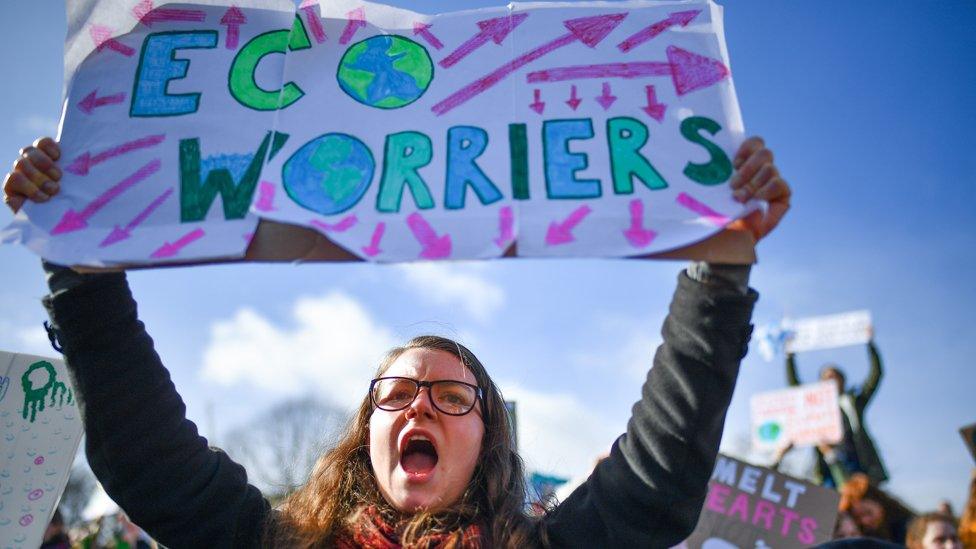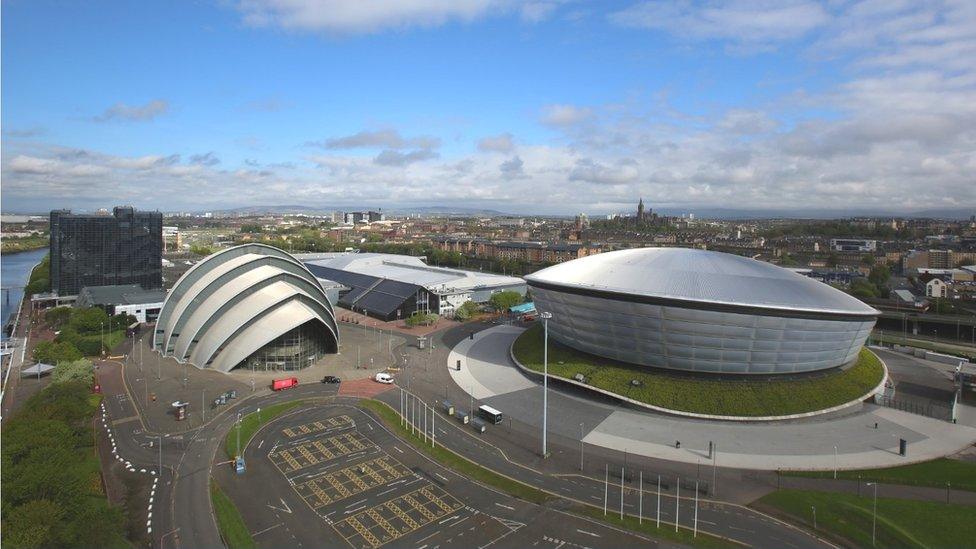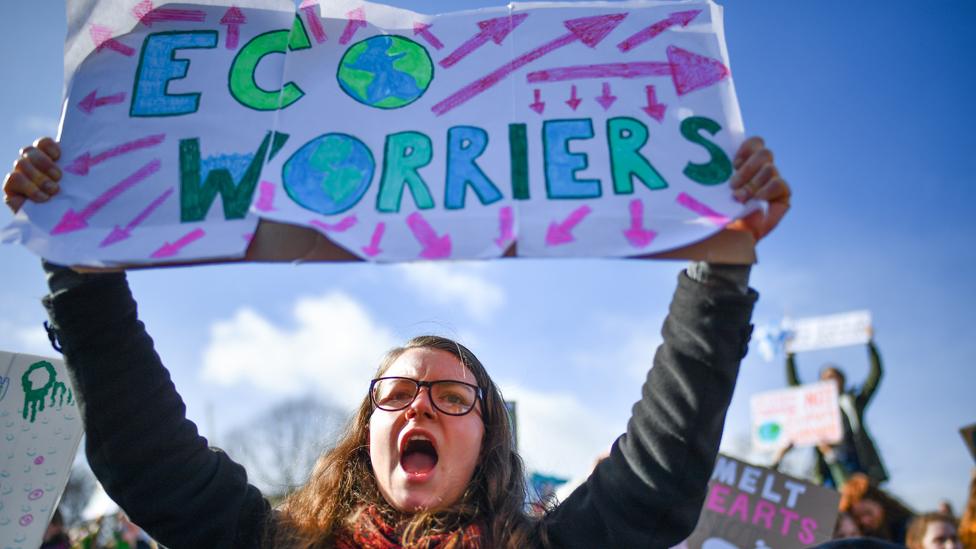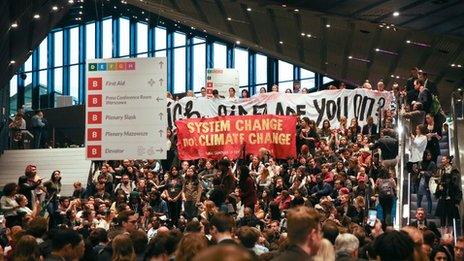COP26: Glasgow to host UN climate change summit in 2020
- Published

Up to 30,000 delegates are expected to attend
A major United Nations climate change summit will take place in Glasgow.
The UK has won the bid to host the 26th Conference of the Parties, known as COP26, following a partnership with Italy.
Up to 30,000 delegates are expected to attend the event at Glasgow's Scottish Events Campus (SEC) at the end of next year.
It is designed to produce an international response to the climate emergency.

The Scottish Events Campus includes the Armadillo and the SSE Hydro
The UK will host the main COP summit while Italy will host preparatory events and a significant youth event, as part of the agreement.
Claire Perry, UK nominated president for COP26, said: "In 2020, world leaders will come together to discuss how to tackle climate change on a global scale - and where better to do so than Glasgow, one of the UK's most sustainable cities with a great track record for hosting high-profile international events."
The Scottish government's Climate Change Secretary Roseanna Cunningham said the decision to host COP26 in Scotland was right "given our leadership on climate action".
She continued: "Scotland was one of the first countries in the world to acknowledge the global climate emergency and the Scottish government has introduced the toughest targets in the UK to ensure our action matches the scale of our climate ambitions.
"We look forward to working collaboratively with partners to deliver an ambitious and effective conference that ensures Scotland plays a leading role to help promote the increased global effort to tackle climate change."
'Vote of confidence'
Foreign Secretary Dominic Raab said the announcement was a "vote of confidence" from the UK's international partners.
He added: "The UK is leading the world in tackling climate change. We're the first major economy to pass laws to end the UK's contribution to global warming.
"Since 1990 the UK has reduced its emissions by over 40% while growing the economy by over two thirds."
The UK government said it had cut greenhouse gas emissions by 16 million tonnes in the last eight years.
Secretary of State for Scotland Alister Jack said: "The UK government is showing great leadership on this vital issue - becoming the first major economy to pass new laws to reduce emissions to net zero by 2050."
Allow X content?
This article contains content provided by X. We ask for your permission before anything is loaded, as they may be using cookies and other technologies. You may want to read X’s cookie policy, external and privacy policy, external before accepting. To view this content choose ‘accept and continue’.
The conference has been described as the most important gathering on climate change since the Paris agreement was signed in 2015.
Lasting for two weeks, it would be the largest summit the UK has ever hosted, with up to 200 world leaders expected to attend for the final weekend.
2020's conference is seen as a major crossroads in the battle against global climate change. It will likely be held just after the next US presidential election.
It will also be the year in which governments are due to review their promises to cut carbon emissions in line with the latest science.
Campaigners have said the event will give the UK the chance to set the tone for the world's future.
Climate campaigner Greta Thunberg appeared at the 2018 conference in Poland.
It is expected to pose major security challenges for the Scottish government and police.
Sources have told BBC Scotland that police will seek additional funding from the Scottish and UK governments.
Deputy chief constable Malcolm Graham said: "Police Scotland has an enviable reputation for successfully and safely policing major events.
"We will now start the detailed process of planning, with partners, for what will be a complex and expensive policing operation to support COP26 and to ensure a safe and secure event."

Analysis by BBC News Science Editor David Shukman
Intense, overcrowded and bewildering - a few impressions from UN climate conferences I've reported from over the years.
They're a rare chance for the world to get together to tackle climate change but because the stakes are high the atmosphere is always tense.
The negotiations are complicated - with long arguments over phrases or even individual words. They regularly drag through the night leaving delegates exhausted.
In Montreal back in 2005, at dawn on the final day, the then British environment secretary Margaret Beckett wept with relief when a deal was reached.
In Copenhagen in 2009, some environmental campaigners were so frustrated with the lack of progress that they walked out - while at the same time other campaigners, who had staged a march outside the conference centre, battled with police in an effort to get inside.
The gathering in Paris in 2015 was one of the smoothest, clever French diplomacy navigating towards a landmark deal, what's called the Paris Agreement.
A system of voluntary cuts in carbon emissions, it formally comes into effect next year. The Whitehall view is that this is an extraordinary opportunity.
But it also means there's a huge responsibility now on British shoulders.
- Published9 August 2019

- Published18 June 2019
